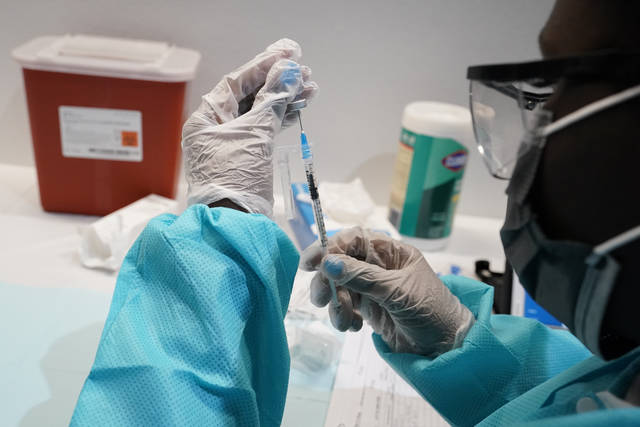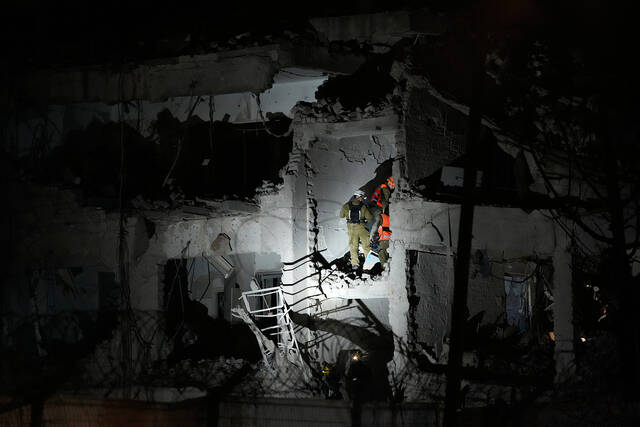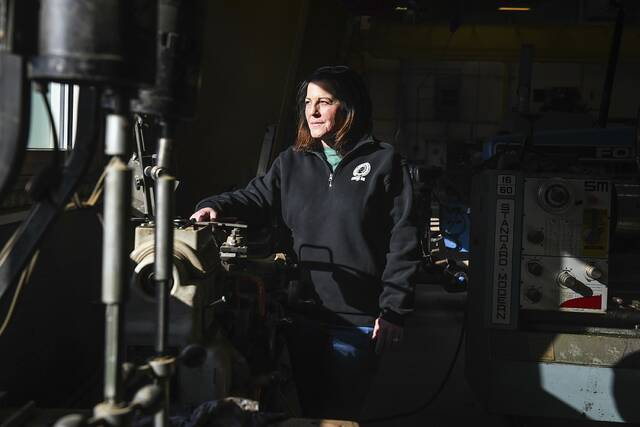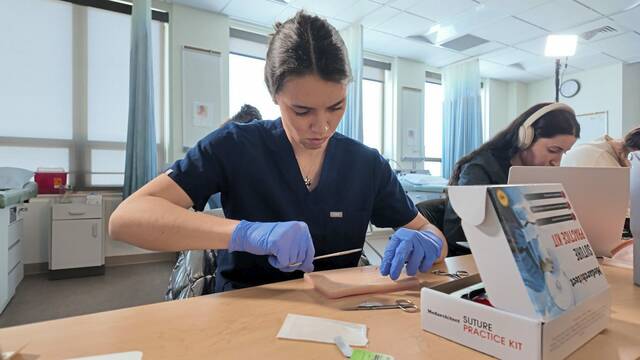U.S. health officials Wednesday announced plans to offer covid-19 booster vaccines to all Americans.
Health officials suggested a third dose of the Pfizer or Moderna vaccine be given to people eight months after the second dose to help increase protection. Boosters could be available by the week of Sept. 20.
The plan is awaiting a U.S. Food and Drug Administration evaluation studying the safety and effectiveness of the third dose, health officials said.
The announcement came shortly after the Centers of Disease Control and Prevention recommended a third dose of the vaccine for certain immunocompromised populations.
Western Pennsylvania doctors explained why health officials are now calling for boosters and what future booster recommendations may entail.
Some experts had been predicting that boosters would not be necessary for the general public yet. Why did this guidance change?
Dr. Imran Qadeer, chief medical officer of AHN’s Allegheny General Hospital: “The White House Covid Task Force announced it in order to stay ahead of the virus — because right now the vaccine is very effective in preventing severe infection or death, but its effectiveness is waning in terms of preventing transmission.
“The vaccine efficacy is measured in two areas. One is the transmission of the virus. The other is preventing severe disease and death. The vaccine is still very effective in preventing severe disease, death and hospitalization. What we’re seeing is efficacy waning in transmission of the virus. We’re seeing more breakthrough infection because of the reduced efficacy of transmission of the virus.”
When will booster doses be available for the general public?
Dr. Lee Harrison, associate chief of epidemiology and education at the University of Pittsburgh: “What they’re aiming for is starting Sept. 20, eight months after the second dose. I’m hoping the rollout will go smoothly starting on that date. The process is authorization by FDA for a booster dose, and then ACIP makes the recommendation about the booster dose. My understanding is they are going to go through that process.”
Should we expect long waits for booster availability as we did for the initial vaccine?
Dr. Carol Fox, chief medical officer at Excela: “I don’t really think so from the perspective of vaccine availability. We have an ample supply.
“The other thing to keep in mind is that the recommendation is you receive it eight months after your first series. It naturally spaces itself out based on the recommendation of eight months following your second dose.”
Are covid boosters part of our lives for the foreseeable future?
Harrison: “The short answer is yes. It’s going to depend on several factors. One is the durability of immune response and the appearance of new variants.”
Will this booster be designed to prevent the delta variant?
Harrison: “My understanding is that the current booster is the same vaccine that was given originally, but the idea is that when you get a very, very high increase in antibodies with this third dose — even though it’s not a delta-specific boost — you’re going to get increased protection against delta. The reason we know that is because the current vaccines protect very well against delta.”
Knowing that booster vaccines will likely be recommended soon, should people who are fully vaccinated be concerned they aren’t well-protected now?
Qadeer: “If you’re vaccinated, there’s good data to suggest there’s strong protection from death, hospitalization and severe illness. Those are the things we’re worried about.”
Why should people get a booster?
Harrison: “We’ve got a disease that can be quite severe, we have evidence for waning protection over time and the appearance of delta. Getting a booster will increase protection against not only delta, but other variants that are circulating.”
Do you have hope that people who haven’t been vaccinated at all yet will change their minds?
Fox: “I do. I think as more and more information becomes available, as more individuals are vaccinated and do well with the vaccine, I do think some people’s minds will change. I also think that as people see individuals who aren’t vaccinated become sicker than individuals who are vaccinated, that’ll change people’s minds. I think there’s just going to be a lot of forces that some people will decide they just want to go ahead and get it.”
Do you anticipate that news of additional boosters may deter some people from receiving the vaccine — or that some fully vaccinated people may opt not to continue receiving boosters?
Qadeer: “I think it may deter some people from receiving the vaccine. But I think the point to stress is that the booster dose increases your chance of survival if you were to contract the disease and it also increases the vaccine efficacy.”
The World Health Organization called for nations to stop recommending boosters until poor countries have adequate vaccine supply to offer initial doses. Do you think it’s responsible to recommend booster doses for Americans while many countries are still struggling to offer first doses to their populations?
Harrison: “The White House has made the case we can do both. It’s in our own interest to maximize the protection we can get from vaccines.
“On the other hand, the U.S. is playing a role in providing vaccines to other countries. It’s the right thing to do but it’s also in our best interest, because then the pandemic is uncontrolled, you’re going to have a lot of replication of the virus and generation of variants that could threaten the United States.”








